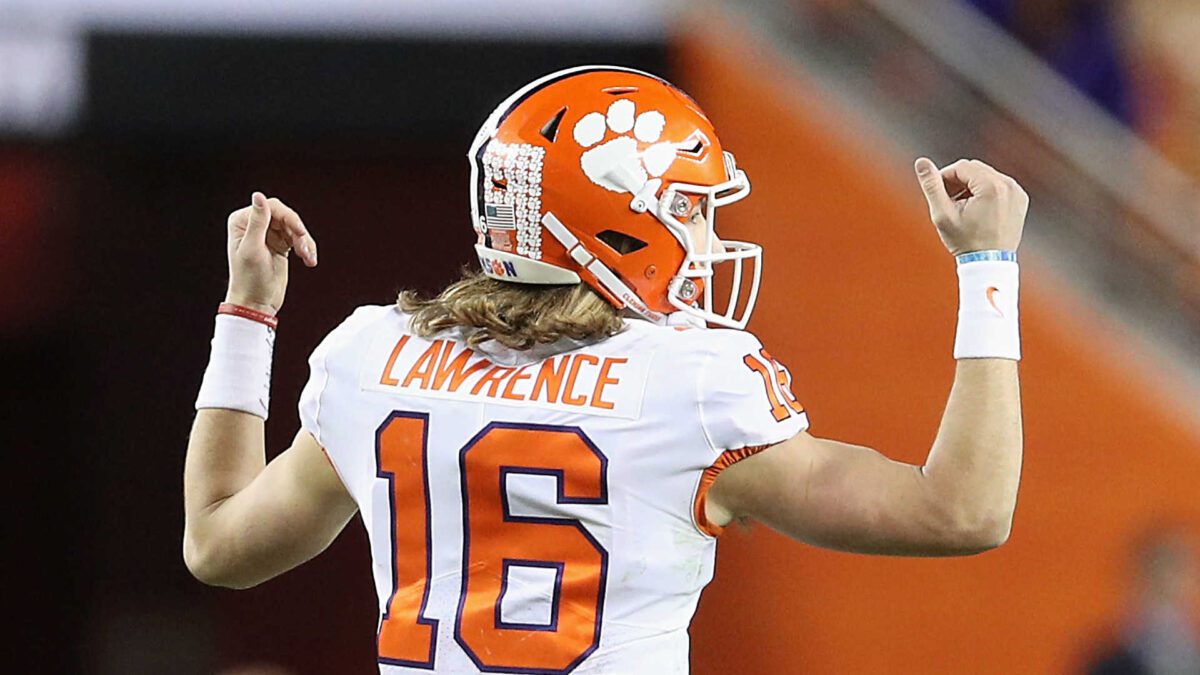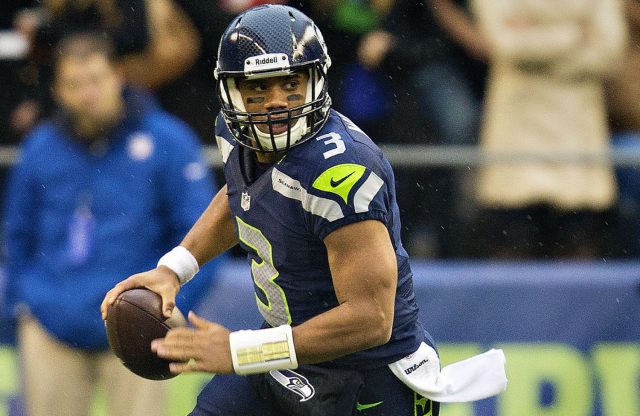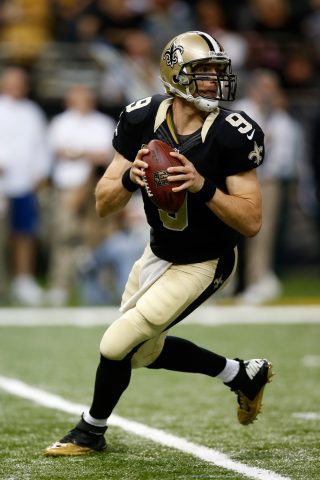
Every so often I’ll hear a comment or see a tweet from a fan of a team suggesting a loss would be more beneficial for better draft positioning. I’m here to tell you, these fans are 100% unequivocally wrong in just about every situation. I refer to this as a “loser’s mentality” counter to the culture of winning, more detrimental to roster building and the overall future success of a franchise.
The problem with trying to debate someone who is more excited about seeing improved draft status is stifled by their belief that win or lose now, their team is equally positioned for success after adding that next rookie piece to the mix. Unfortunately, this is not the case though, as a team more capable of winning games inevitably has more talent in place and fewer overall needs to improve upon in the first place.
Let’s start with this scenario to demonstrate what I mean by talent already in place. Your favorite NFL team is 4-8 heading into the home stretch. Now if they run the table and go 8-8 they’ll miss the playoffs by two games, so many fans believe they are better off finishing 4-12 to get a top-five pick in the NFL draft. But smart fans realize in the simplest form here that if the team is capable of ripping off a 4-0 stretch to finish out the season they’ll have fewer parts to replace heading into next year.
Not clear enough, let’s add this element to the mix. The starting QB of this 4-8 team has been playing poorly and management is struggling internally with the idea of extending the contract or letting him walk in free agency. They have a mid-round rookie QB sitting on the bench as well and have nothing more than practice evaluation and college game film to determine if he’s the next guy to lead the franchise if they move on from Mr. Starter.

The brain trust decides to bench the starter and insert the rookie for the last four games of the season to see what they have. Question for Mr. Average Joe Fan here now. Is the team better off winning these last four games and going 8-8, or losing all four games to get a higher draft pick? If you’re Mr. AJF and you say give me 4-12, you’re incorrect. Why is that? Because clearly the rookie wasn’t good enough and your 4-12 team still needs a QB. But if the rookie played lights out, went 4-0 and looked like the next Russell Wilson, your team would be picking in the middle of the 1st round with one less huge need to fill in the road back to playoff football the following year.

I’ll ask again, which NFL franchise is in a better position for long-term success. The 8-8 team with a lights-out second-year starting QB and the 17th pick in the upcoming draft, or the 4-12 team with the 4th pick and two quarterbacks the brain trust is looking to move on from? This is the easiest question to answer. At very best you’d be lucky to find that lights-out franchise QB with the 4th overall pick, yet you still wouldn’t have the talent of the 17th pick to pair with him.
Fans with the loser’s mentality never apply this logic, nor do they realize it applies to every position on the roster. The more talent in place, the more wins a team is capable of, and the fewer pieces need replacing. Sure, having a high draft pick is great. But you can’t have both. A team can’t “earn” a high draft pick if they have already have more talent on their roster than many of the other teams in the league.
Now let’s focus on that higher draft pick for a moment. In most years the 4th overall pick will outplay the 17th overall pick. There’s no disputing that. But occasionally the higher pick is a bust, or more likely (as when looking at draft history) both the 4th and 17th picks perform at a high level for several years contributing to the success of their respective teams. Yes, the 4th pick will be the better of the two players more times than not. But the difference is far more likely to be a minimal gap in talent between these two players, and one that pales in comparison to filling multiple needs the team will inevitably find they must address across the board.
I’ll never forget an interview Drew Brees once gave following the 2015 season. The Saints were 5-9 heading into the final two games and Brees was dealing with a brutally painful plantar fasciitis injury which he decided to play through. Many people were questioning why Brees was going to play in those last two “meaningless” games when the Saints had no chance of making the playoffs. I found the answers he gave in this interview to be fascinating.
First, Brees explained that during the practices he experimented with several different tape jobs on the foot to find what was more comfortable. Tape it up, run around for 10 minutes or so, remove the tape, wrap it up a different way, repeat, repeat, repeat, etc. You get the point. Then he went on to say that you just never know when “it” is going to happen. Unfortunately, I couldn’t find the interview in a web search so I’m going to paraphrase as best as I can remember from six years ago.

Brees was referring to the chemistry, that connection he could develop with a less experienced WR. Those last two games that season was yet another opportunity for him and his teammates to grow and improve and maybe take something that would carry over into the 2016 season. Had Brees sat out those last two games, they would be missed opportunities.
In week 16 the Saints beat the Jaguars as Brees threw for 412 yards and 3 TDs, and in week 17 it was another 323 yards in a squeaker over the Falcons. WR Brandon Coleman was playing in his first full season and grabbed nine balls for 126 yards in those two games. He went on to have another two productive seasons with the Saints. In hindsight, maybe the Saints wouldn’t have brought Coleman back in 2016 if back up QB Luke McCown played those final two weeks. And more importantly, maybe it’s that type of two-week window that could’ve led to a far greater talent discovery. Theoretically, Coleman could’ve become the next Michael Thomas, and certainly, the Saints and their fans wouldn’t want to see a player get released and develop like that elsewhere.
Love our content? Check out the GoingFor2 Live Podcast Network!
If you’re going to make the case that a higher draft pick is less likely to be a bust, you must also acknowledge internal player development is a contributing factor to future success as well. Again, player development leading to an increase in wins and a lower draft spot go hand and hand offsetting one another. It’s practically impossible to have the best of both here. In other words, you can’t have your cake and eat it too.
With the 12th pick in the 2016 draft, the 7-9 Saints took DT Sheldon Rankins, a solid contributor with 8.0 sacks in 2018 although injuries have more recently caught up with him. The two players selected ahead of Rankins, Eli Apple and Vernon Hargreaves haven’t faired much better through their careers. Other possibilities selected in the range of a 5-11 record had the Saints lost those games might have netted Ronnie Staley, DeForest Buckner, Jack Conklin and Leonard Floyd. Buckner has had a better career than Rankins, but I can’t imagine that impact would be nearly as strong on the team as the impression felt by Brees willing through his painful injury and leading them to victory. The truth is despite a poor win/loss record there is no such thing as a “meaningless” game, only opportunities a franchise can build upon to work towards a culture of winning. Something to think about the next time your favorite team is wrapping up a regular season with no playoff games to follow.
ATTN Dynasty Commissioners: Do you want to do something cool for your league? How about a 1-hour live show dedicated to YOUR league? Team-by-team breakdowns, rankings, and more. For details and to book a show, visit: GoingFor2.com/plp.





